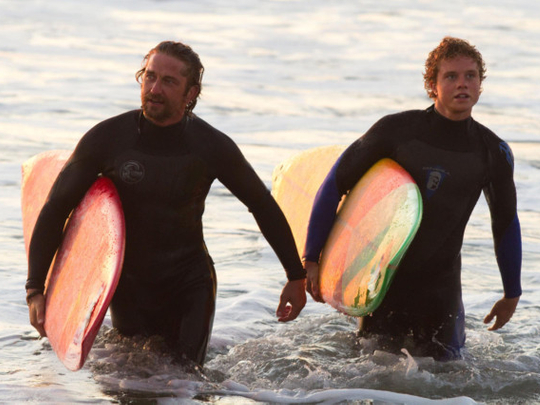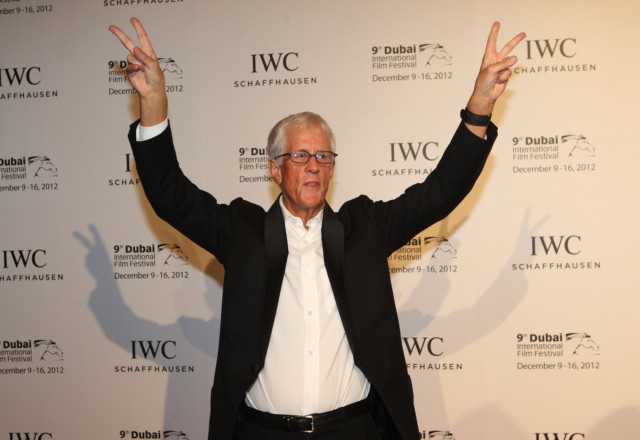
British director Michael Apted, who was honoured with the Dubai International Film Festival Lifetime Achievement Award last week, is thrilled about the nod.
But accepting the award doesn’t mean he’s resting on his laurels. Currently, iconic director behind James Bond hit The World Is Not Enough is charting plans to make a film set in the Middle East. The award-winning director, who has straddled documentaries and blockbusters, is currently scouting locations in this part of the world for his untitled project.
“I am loving it here and I can’t wait to start on my new project. I believe that people will always have an appetite for good films,” said Apted.
tabloid! caught up with the director to get to the bottom of it all…
Congratulations. How does it feel to be honoured with the Dubai International Lifetime Achievement Award and do you feel slightly redundant when you receive such a nod?
No, I don’t really think like that. I don’t want to think that this is their way of saying goodbye and they had enough of me. Two things make me happy. I am thrilled to receive it here because I never knew the Middle East had ever heard of me or seen my films. Also, when you are honoured with such an award, they are looking at my body of work. We now live in a world of the moment, the question what we did last matters the most. So this is an acknowledgement of what I have done over the years — some good and some not so good.
Are you your own worst critic?
I am pretty bad about that. I always sound depressed and negative about my work. But I am secretly proud that I have managed to keep going.
How do you keep yourself inspired?
It’s an interesting challenge for a filmmaker to grab a viewer’s interest and keep that pace on. You worry about the future and whether it lies in short quick pieces on Youtube. But I believe people have an appetite for a decent meal and not just want to eat a bag of chips. I have confidence that people want to see stories that have some stuff in it. What that stuff is hard to know.
Was your latest surfing drama Chasing Mavericks, which got mixed reviews, your way of telling good stories?
It was a strange experience for me. I took over the film and came on board three weeks after they started shooting. I knew the director Curtis Hanson and he got ill. [Hanson, the LA Confidential director had to pull away from the last leg of shooting since he had a heart surgery]. He was clearly not coming back and I ended up taking it on and doing post-production for nine months. I didn’t know anything about big wave surfing and I have lived in California for 30 years. I am glad I did Chasing Mavericks.
But did you feel as if you inherited a fractured product?
No. I inherited it but I couldn’t go back and start all over again. My job was to finish the film. I didn’t sit there and think I want to change this or that. We can’t say let’s start again. Who knows if I would have done it differently? But I am happy that I got to do something different.
When Gerard Butler was in Dubai recently, he called his acting stint in Chasing Mavericks as a life-altering experience. What was it directing an actor like Butler?
Yes, he nearly died from that surfing accident. I liked him and he has a lot of opinions. He’s a bright man and he’s worth listening to. But Gerry being Gerry, he thought he could do stuff. One day he just went out there in the sea and had some luck. But the next time he went, he got hit and he got hit by another wave. He was under water for 40 seconds and when he came out of it he was in the hospital under observation. The insurance company said that he was never going to get into water again in that film. We were shaken by that experience. When you are very organised and there’s safety measures locked in on the sets, you tend to get blasé about it. We need to realise that we are playing with fire and nature here. But he was fun to work with.
Your documentary 7 Up is legendary. Was it tiring to keep track of your subjects every seven years?
I loved it because it was the one thing in my life I did that was unique. I don’t think anybody will do it ever again. It was like a huge Victorian novel. Plus, it’s about ordinary people and people related to it.













